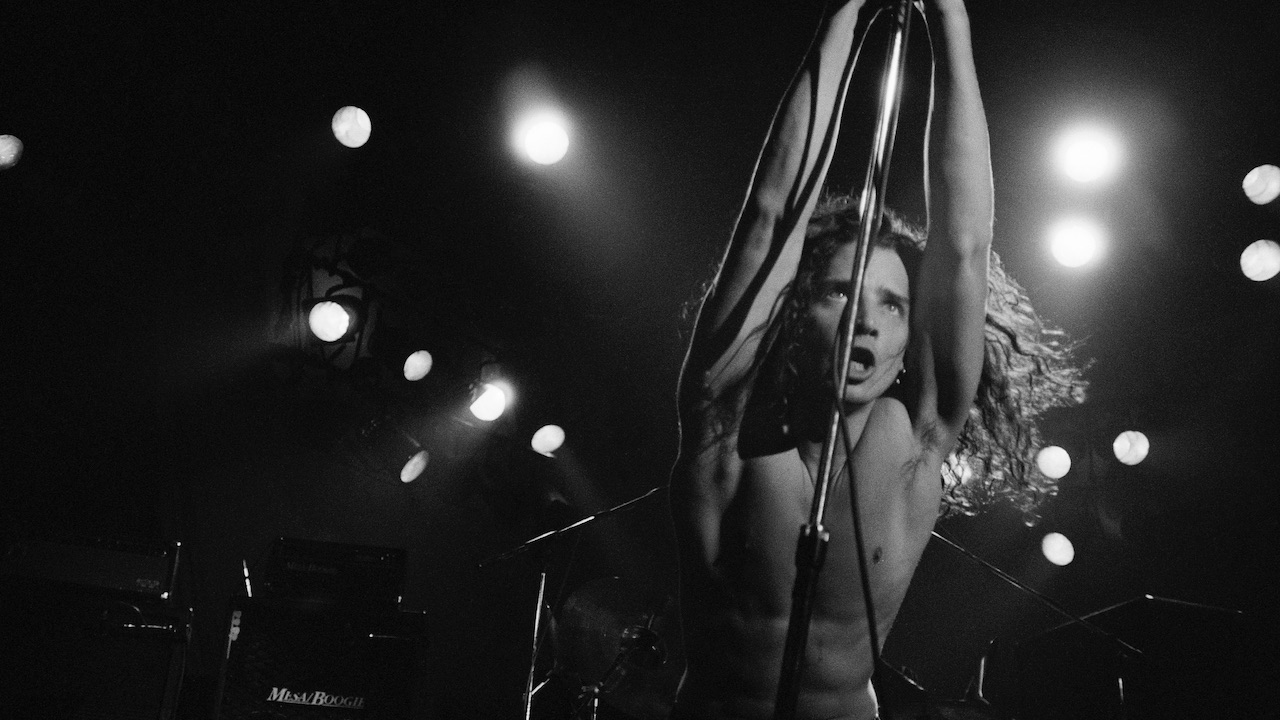How Soundgarden's Louder Than Love turned up the volume on Seattle's grunge scene
Released on September 5, 1989, Soundgarden's Louder Than Love album marked Chris Cornell's band out for future greatness

The following is a true story.
It’s the summer of 1990, and this writer finds himself on a date with a beautiful girl from Kildare, in Douglas, on the Isle of Man. Both parties are working on the island for the holiday season, and staying in the same hotel, and as the evening has been rather agreeable, a night-closing drink back in my room is offered and accepted.
As we sit at a Catholic nun-approved distance from one another on the edge of the bed, conversation eventually turns to music, namely the music that has been blasting at obnoxious volume from the tape deck which my room mate/best friend and I purchased to play the soundtrack to our summer.
“Do you guys only listen to heavy metal?” Debbie enquires.
“Not entirely,” comes the reply, a little too smugly. “Faith No More and Nine Inch Nails and Soundgarden aren’t heavy metal bands, you see. Now, to you, they might sound like heavy metal bands, but what they’re doing is different, it's smarter and darker, and more subversive than heavy metal.”
To prove this undeniable argument, I press ‘Play’ on the tape deck, which currently contains a cassette of Soundgarden’s second album Louder Than Love. With unfortunate timing, the cassette is cued up on a track on side two called Big Dumb Sex.
“I know what to do,” wails vocalist Chris Cornell. “I’m gonna fuck, fuck, fuck, fuck you, fuck you.”
Two mildly mortified Irish teenagers sit in awkward silence as the song draws very, very, very slowly to its conclusion.
The latest news, features and interviews direct to your inbox, from the global home of alternative music.
“I’ll see you tomorrow Paul. Goodnight.”
Soundgarden always did confuse people.
Formed in 1984 with the express aim of being “Black Sabbath without the parts that suck”, the group had a polarising effect on the Seattle rock community, who couldn’t quite decide whether their dirgey Sabbath/Stooges/Zeppelin inspired-sound was a lusty celebration of classic rock or a straight-faced piss-take. Naturally, Chris Cornell and Kim Thayil never apologised and never explained.
When the group quit America’s most respected punk rock label SST to become the first band from their peer group to sign to a major label (A&M), suspicions of their motivations and intentions only intensified. And that’s before anyone had heard their new music.
Given the context in which it was made, and the career moves which subsequently followed – most notably the quartet’s decision to tour with Guns N’ Roses in 1991 – it has become fashionable to claim that Louder Than Love was Soundgarden’s attempt to edge closer to the rock mainstream. This is revisionist nonsense. A full two years before what was later dubbed ‘The Year That Punk Broke’, the mainstream was Pump, Dr. Feelgood, Skid Row and Sonic Temple, and though a new ‘alternative’ sensibility - spearheaded by NIN, FNM, Dinosaur Jr., Jane’s Addiction and Sonic Youth – was gaining traction, Louder Than Love was a particularly obtuse and awkward release, even by the standards of the latter group.
Bassist Hiro Yamamoto’s agonisingly uncomfortable I Awake (opening line: “Woke up depressed, I left for work, you have a good day, it’s not your fault”) is possibly the album’s most off-kilter composition, but there are unconventional, unorthodox ideas at play throughout, from Kim Thayil’s one-note drone guitar which runs for a full two minutes through opener Ugly Truth, to the lurching time signature and tempo changes destabilising Gun, through to the creepy spoken word drawl running beneath Cornell’s melody lines in the deeply ironic - honest! - hair metal piss-take Big Dumb Sex.
Louder Than Love marks the point at which Cornell began to assume the dominant role in the band. Where the songwriting credits on 1988’s Ultramega OK were evenly split between the singer, Thayil and Yamamoto, Cornell’s contributions are given increased weighting on the band’s second album ( a situation which hastened Yamamoto’s departure from the group) and it’s these tracks – Ugly Truth, Loud Love and Uncovered, in particular – which shine brightest from the sludge.
Wit the later addition of bassist Ben Shepherd and with drummer Matt Cameron’s blossoming as a songwriter of note, Soundgarden’s group dynamic would shift again on 1991’s Badmotorfinger, but here Cornell emerged as the band’s focal point at precisely the point where MTV’s 120 Minutes had identified a new breed of charismatic figureheads - Mike Patton, Trent Reznor and Perry Farrell among them - on the fringes of the mainstream.
Upon release, on September 5, 1989, Louder Than Love didn’t set the world on fire, peaking at number 108 on the Billboard 200. But its impact went beyond mere chart stats, for it pushed Soundgarden to the front of a new musical vanguard whose influence would be keenly felt in the decade that followed its release. , when it would become acclaimed as one of the cornerstones of the new alternative nation.
The Seattle quartet would gain greater poise and power, but Louder Than Love marks the point at which Chris Cornell's group transitioned from ungainly local heroes to self-aware architects of their own future.

A music writer since 1993, formerly Editor of Kerrang! and Planet Rock magazine (RIP), Paul Brannigan is a Contributing Editor to Louder. Having previously written books on Lemmy, Dave Grohl (the Sunday Times best-seller This Is A Call) and Metallica (Birth School Metallica Death, co-authored with Ian Winwood), his Eddie Van Halen biography (Eruption in the UK, Unchained in the US) emerged in 2021. He has written for Rolling Stone, Mojo and Q, hung out with Fugazi at Dischord House, flown on Ozzy Osbourne's private jet, played Angus Young's Gibson SG, and interviewed everyone from Aerosmith and Beastie Boys to Young Gods and ZZ Top. Born in the North of Ireland, Brannigan lives in North London and supports The Arsenal.
